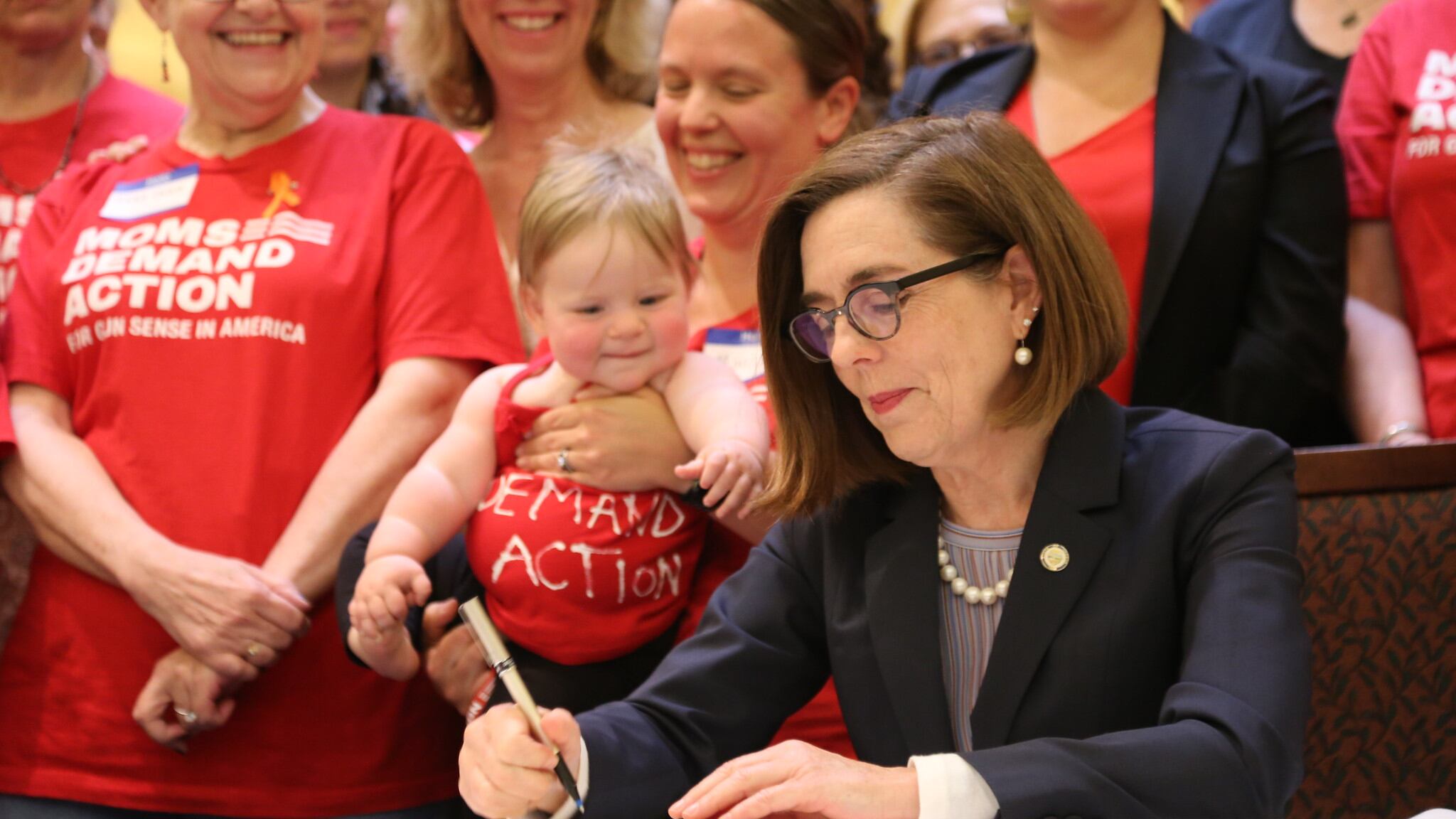BROWN ORDERS CARBON CAP: After Republicans walked out of the legislative session to block a carbon-cap bill, Gov. Kate Brown used her executive power March 10 to reduce the state's carbon emissions. Brown's executive order requires state regulators to cap carbon emissions of vehicles and heavy industry, without creating a market in which companies could buy credits from producers of renewable energy, as proposed by Senate Bill 1530. In short, that means Brown's action is all stick and no carrot. "I've heard it loud and clear from our young people in Oregon: Climate action is crucial and urgent," Brown says. "If we adults don't take action right away, it is the next generation that will pay the price. We owe it to them to do our part to ensure that the globe they inherit is on a better trajectory than the one it's on today." The order seeks to reduce emissions 45 percent from 1990 levels by 2035, and 80 percent from 1990 levels by 2050, requiring the Environmental Quality Commission to set caps on emissions from transportation fuels, natural gas and large industry.
ADVOCATES SEEK END TO EVICTIONS, SWEEPS AMID ILLNESS: Portland City Commissioner Chloe Eudaly has signed a petition asking Mayor Ted Wheeler and Gov. Kate Brown to declare a moratorium on evictions during the coronavirus outbreak. The campaign by Portland Tenants United says renters could soon be financially strained should they miss work because of COVID-19. At press time, the petition had over 1,500 signatures. Meanwhile, an advocacy group called Portland Street Medicine has called on the city to halt homeless camp sweeps during the outbreak. The mayor's office says the city plans to continue the cleanups for now. "At this point," says mayoral spokeswoman Heather Hafer, "we are still posting and cleaning sites, but we have lowered our threshold for what warrants a cleanup."
TOP EARNERS ADD TO CITY BUDGET WOES: The city of Portland begins hearings on its 2020-21 budget this week, and one of the biggest cost drivers is the 1,600 city employees not represented by a union. Those employees, mostly managers, saw one-year salary hikes averaging 12 percent, according to the City Budget Office, because of a new state pay equity law and the city's own reclassification of jobs. They now make an average of $100,000. Mayor Ted Wheeler wants to trim merit pay increases, cap cost-of-living adjustments to the first $100,000 of salary, and freeze pay at the top of the scale. "We value our employees and we want to ensure that they are compensated for the outstanding work they do," Wheeler says. "But to remain fiscally responsible, we need to slow personnel cost growth."
GREG SMITH GOES TO WASHINGTON: As WW has reported, the senior Republican member of the Oregon House, Rep. Greg Smith of Heppner, works numerous side jobs when not legislating ("Both Sides Now," WW, May 29, 2019). A day after House Republicans walked out Feb. 25, Smith announced he would donate his legislative salary to charity while they were gone. A wise move, since emails show Smith was busy arranging meetings in Washington, D.C., with members of Oregon's congressional delegation on behalf of Eastern Oregon clients. Smith declined to comment on his travels, saying only, "I donated my legislative salary because I didn't find it appropriate to take a salary if I wasn't working in my legislative capacity."
LATE MAYORAL ENTRY: Longtime eastside real estate developer Randy Rapaport, 59, jumped into the Portland mayor's race on the final day for filing, March 10. Known for the Belmont Street Lofts and Clinton Condominiums, Rapaport has been battling the city's Bureau of Development Services over the Pegasus Project, an artist collective and food cart pod in Montavilla. Rapaport joins 16 other candidates who previously filed to challenge Mayor Ted Wheeler on May 19.

